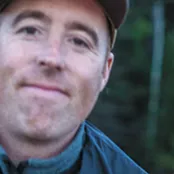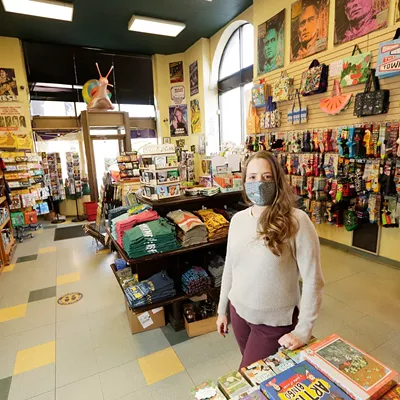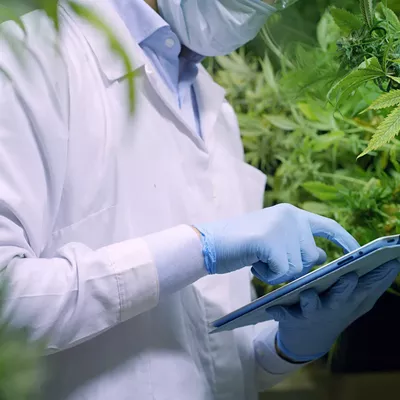It was the morning after the night John Prine died. The girls, ages 8 and 5, were asking for help building something in the living room. The wife, working from home, was on the phone. I’d been pacing the house with the junior guitar I’d given the girls, wearing the same gray sweatpants, black poncho, and camouflage baseball hat I’d been wearing for days. I couldn’t quite remember the words to “Crazy as a Loon.” I kept singing the first verse over and over. I was looking out the window. The girls were panicked about a structural collapse in the living room. It was quarantine.
That night, when I went to tuck the girls in, they were sitting on the older one’s bed, chatting quietly while working in a coloring book. No one had told them to do this. They’d just slipped off and gotten some crayons. If you’re a parent, you’re not surprised I was speechless. I said, “What’s going on here?” If you’re not a parent, all you need to know is, this has never happened, and I was suspicious.
They looked up and Elsa, speaking for them both, said, “We were just talking about how all we have is each other.” The younger one was nodding.
I said, “What?” and they repeated it in unison. Now I was speechless and dumbfounded, because this was clearly a reference to something I always tell them, which means listening had occurred, something up till now in parenting, I wasn’t sure ever had. It’s a thing I say when they’re being cruel to one another, which is often. I say, “Someday you’ll learn, family is all you really have. Be careful with each other.” I always mean this when I say it, but I never thought it would apply so specifically, or immediately. I thought about their experience over these past weeks. Neither of them has seen another child since schools closed in March. All they do have is each other. And they’ve become closer over this time, have developed conspiracies. They rely on one another in ways they never have.
The truth is, much of our day-to-day existence during this time has been like this. Aside from the strangeness of leaving the house, the horror of this pandemic is still in our phones — the deaths of so many old and young, dehumanizing politics, and crucial systems hanging in the balance. But outside of our phones, we are playing Monopoly together, eating all our meals together, sitting and having conversations. Yesterday at 11 am we played a house-wide game of hide-and-go-seek for an hour, during which my wife and I hid in the closet together and kissed.
Last night for dinner, each member of my household had their own individual chicken thigh with mashed potatoes and biscuits. More gravy? Another biscuit? Go right ahead. This was Monday night. It wasn’t anybody’s birthday; we weren’t celebrating a holiday; there had been no wedding or funeral. Even in quarantine, for us, it was just regular. Two actual chickens. Chickens we never even met. In truth, this type of luxury has always seemed surreal to me. I’ve never expected it to go on. Are these the last of the good days? If so, they’ve been pretty good.
I’m ignoring, of course, the crushing anxiety, which though it’s always existed, now seems more acute. It comes mostly at night for us, but days-long anxiety attacks do occur for us both; where all we think about is what happens if the money stops coming, or our parents get sick, or crucial systems fail, or — Jesus — you know what they are. Because of this, we’ve each become very understanding of one another. More supportive, maybe.
One important coping mechanism for us is one my grandfather taught me. He was a fan of Dale Carnegie (you know, How to Win Friends and Influence People). Carnegie’s advice in tough times is to imagine the worst-case scenario and find a way to be OK with it. Then you can move forward. For us, this helps. We close our eyes and imagine getting sick and dying, or our parents getting sick and not being able to help them, or we live but lose the jobs and the house, can’t feed our kids, refugees, or worse, worse, worse.
Have we done enough to prepare? we ask ourselves. The answer we increasingly give is, we’ve done what is feasible, though the gap is huge. Probably none of the worst possibilities will materialize. But none of them are impossible, either. Any of them, in fact, could happen with or without a pandemic. We know this. It’s just now all our fears are at the front door, instead of howling off in the woods somewhere. In our anxiety, we think about everyone, every parent ever. We think about those for whom the worst has happened. When it overwhelms, we wonder, how has anyone ever done this?
But we find a way to be OK, because we have to. We remind ourselves we’ve been happy already. We tell ourselves, no matter how bad things get from here — happiness has already taken place. It’s happening now. For us, this means something.
I say this over and over, and I put the girls in their PJs. I say it over and over, and I brush their teeth. I say it over and over, and I put them both to bed. ♦
Sam Foley holds an MFA from Eastern Washington University. He lives in Spokane with his wife and two daughters.





















